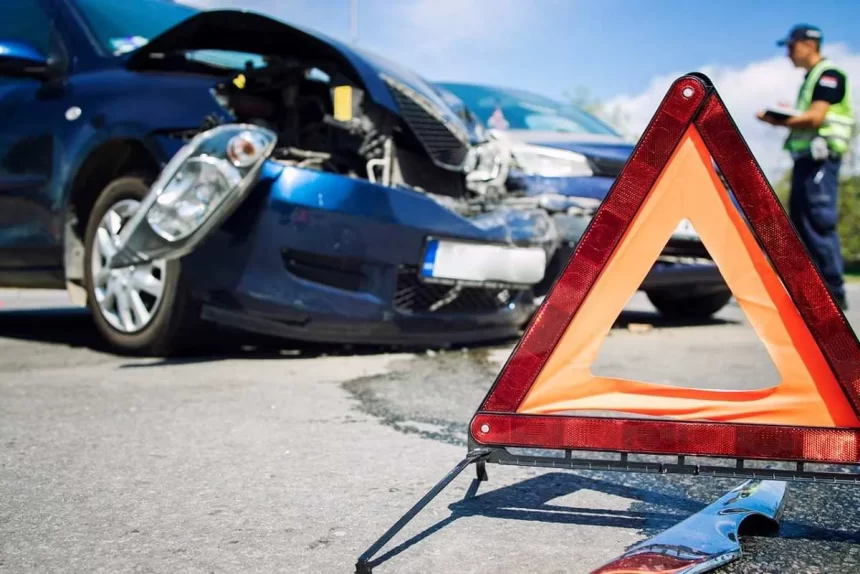Car accidents are unfortunately a common occurrence on roads worldwide, with millions happening every year. Whether it’s a minor fender bender or a major collision, being involved in an accident can be a traumatic experience.
In the chaotic aftermath, knowing what steps to take immediately can make a significant difference in ensuring everyone’s safety, protecting your rights, and navigating the aftermath efficiently.
This article outlines key steps to take in the immediate aftermath of a car accident. By understanding these steps and being prepared, individuals can better handle the stress and uncertainty that often follow a car accident, ultimately minimizing the impact on their lives.
Stay Calm and Assess the Situation
The moments following a car accident can be overwhelming, but it’s essential to stay calm and composed. Take a deep breath and assess the situation carefully.
Check yourself and others for any injuries, and if possible, move to a safe location away from oncoming traffic. Turn on hazard lights to alert other drivers, and use warning triangles or flares if available to increase visibility.
Once in a safe location, evaluate the extent of the damage to vehicles involved. Take note of any visible injuries or property damage. However, refrain from assigning blame or engaging in arguments with other parties involved.
Keeping a level head not only ensures safety but also lays the foundation for handling the situation responsibly. Maintaining composure and assessing the situation calmly can help make informed decisions in the moments following a car accident.
Call Emergency Services
After ensuring safety and assessing the situation, the next critical step is to contact emergency services immediately. Dial emergency numbers such as 911 or the appropriate local emergency services hotline.
When speaking to the dispatcher, provide accurate information about the location of the accident, the number of vehicles involved, any injuries sustained, and any other pertinent details.
Emergency responders play a crucial role in providing assistance and managing the aftermath of the accident. Follow any instructions given by the dispatcher, such as administering first aid or moving to a safer location while awaiting assistance.
Exchange Information
- Gather Details: Collect contact information from all parties involved, which includes names, phone numbers, addresses, and email addresses.
- Insurance Information: Exchange insurance details with those involved, including policy numbers and insurance company names.
- Vehicle Information: Record vehicle details such as make, model, color, and license plate numbers.
- Document Witnesses: Obtain contact information from any witnesses present at the scene.
- Take Notes: Make notes about the circumstances of the accident, including the time, date, location, and weather conditions.
- Photograph Documentation: Use your smartphone or camera to capture images of driver’s licenses, insurance cards, vehicle damage, and the accident scene.
- Stay Courteous: Maintain a respectful attitude and cooperate with other parties while exchanging information.
Notify Your Insurance Company
After exchanging information with the other parties involved, the next step is to notify your insurance company about the accident. Contact your insurance provider as soon as possible to report the incident and initiate the claims process.
When speaking with your insurance company, provide them with accurate and detailed information about the accident, including the date, time, and location, as well as a description of what happened. Be prepared to share the information you gathered from the other parties involved, such as their contact and insurance details.
Seek Medical Attention
Regardless of the severity of injuries sustained in a car accident, it’s vital to seek medical attention promptly. Even minor injuries can worsen over time if left untreated, so it’s crucial not to underestimate any discomfort or pain experienced after the accident.
If emergency responders have not already arrived at the scene, consider seeking medical assistance from nearby medical facilities or urgent care centers. Describe any symptoms or injuries to healthcare professionals thoroughly, as this information will be documented and may be essential for insurance claims or legal proceedings later on.
Preserve Evidence
Preserving evidence is crucial for supporting insurance claims and potential legal actions following a car accident. As soon as it is safe to do so, begin documenting the scene and gathering evidence.
Take photographs of the accident scene from various angles, including close-ups of vehicle damage, skid marks, traffic signs, and any relevant road conditions. These photos provide visual evidence that can help reconstruct the accident and determine fault.
Collect contact information from witnesses who observed the accident. Their testimonies can corroborate your account of what happened and strengthen your case.
Keep all relevant documents, such as police reports, medical records, repair estimates, and correspondence with insurance companies. These documents serve as tangible evidence to support your claims and document the extent of damages and injuries.
Avoid making statements about fault or liability without consulting legal counsel, as these statements can potentially be used against you. By preserving evidence systematically, individuals can protect their rights and ensure a fair resolution to the aftermath of the car accident.
Follow Up and Stay Informed
Following a car accident, it’s crucial to stay proactive and informed about the next steps in the aftermath. Keep track of any ongoing medical treatments or therapies needed to recover from injuries sustained in the accident.
Attend follow-up appointments with healthcare providers to monitor your progress and document any ongoing symptoms or complications.
Stay in regular communication with your insurance company to ensure that your claim is progressing smoothly. Provide any additional information or documentation requested promptly to avoid delays in the claims process.
In the aftermath of a car accident, taking immediate and proactive steps is essential to ensure safety, protect your rights, and navigate the complexities of insurance claims and legal proceedings.
While a car accident can be a stressful and challenging experience, being prepared and informed about what to do in the immediate aftermath can make a significant difference. By following the key steps outlined in this article and seeking appropriate assistance when needed, individuals can minimize the impact of a car accident and move forward towards recovery and resolution.










